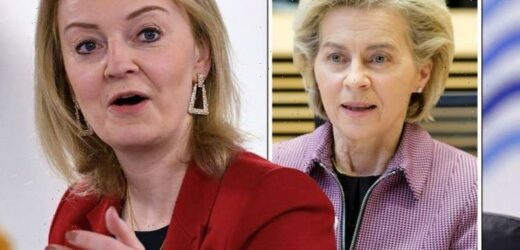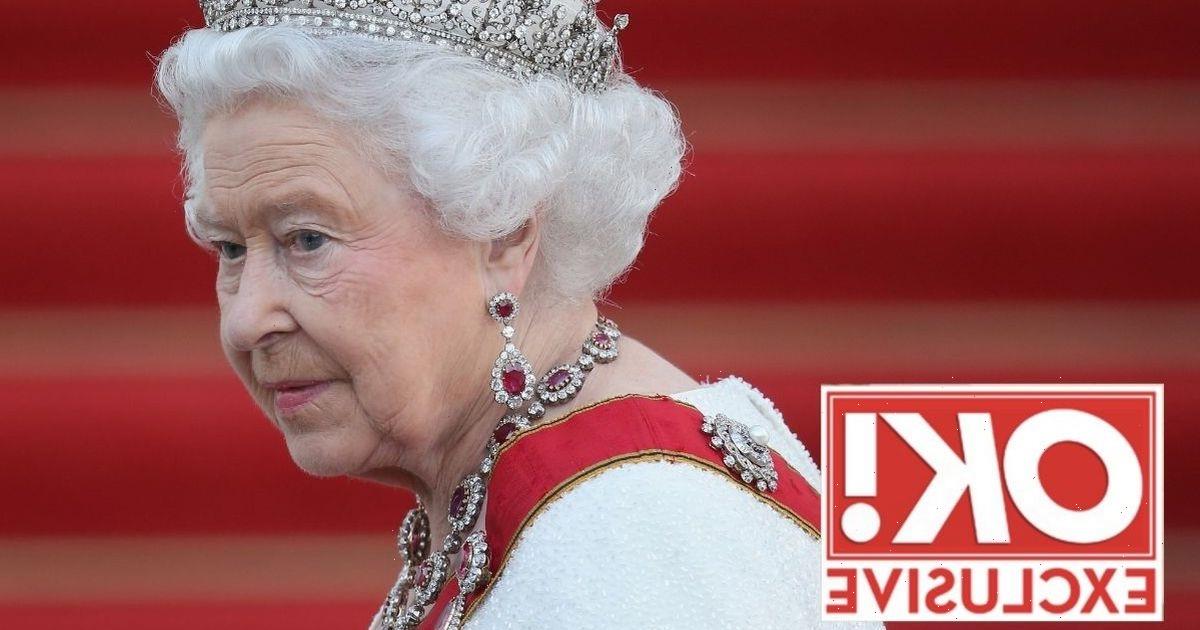Lord Frost gives update on UK’s participation in Horizon Europe
We use your sign-up to provide content in ways you’ve consented to and to improve our understanding of you. This may include adverts from us and 3rd parties based on our understanding. You can unsubscribe at any time. More info
It comes after Ms Truss took over from Lord David Frost as Brexit Negotiator after the former minister resigned. Lord Frost was scrambling to get the EU to let Britain re-join Horizon Europe, the bloc’s £80billion key research and innovation project that the UK was set to contribute £15billion to in order to let its scientists access that huge pool of funding.
The EU told Lord Frost that he had to resolve the Brexit disputes before Britain could re-join, despite its participation being a feature EU–UK Trade and Cooperation Agreement.
While much of the science community has warned that the UK’s exclusion is harming British science, Ms Truss has been urged to consider pulling out of the Brexit deal so Britain can keep the £15billion contribution for a “better” plan.
Science Minister George Freeman wrote in an opinion piece for Research Professional news: “If the EU stands in our way, we are ready with a seamless transition to something just as good, or better.
“In the longer term, we would establish an ambitious offer that delivers many of the advantages of Horizon association along with additional benefits of wider global participation.


“Partnerships with the European research community will remain at the core of our international research offer, but we are also looking to strengthen other relationships, including in the Indo-Pacific and North America.
“We are developing both those research areas where the UK holds a strategic advantage, and those where we might lead in the future, such as artificial intelligence, fusion energy, and others outlined in the 2020 R&D Roadmap and 2021 Innovation Strategy.
“This is in addition to the new science that the Advanced Research and Invention Agency is being created to explore.”
While the UK might be looking for new partners now that Horizon Europe may be off the table, EU programmes have been able to provide long-term fellowships and international industrial collaborations for UK universities and researchers that will be sorely missed as a result of Britain’s exclusion.
But the UK’s own domestic strengths look to be a core focus for this Government after Prime Minister Boris Johnson set out a plan to make Britain a “science superpower”.
Mr Johnson wrote in an article for the Daily Telegraph: “We want the UK to regain its status as a science superpower, and in so doing to level up.

“The UK has so many of the necessary ingredients: the academic base
(four of the world’s top ten universities), a culture of innovation, the amazing data resource of the NHS, the capital markets.
“What we are offering now is record funding combined with the strongest possible political support and backing for science and a clear indication of where the Government sees greatest need.”
But some industry voices have argued that Britain won’t be able to fulfil Mr Johnson’s target unless it is a part of Horizon Europe.
DON’T MISS
NASA signs up British priest to prepare for alien life reveal [REVEAL]
Solar storm warning as NASA predicts ‘Earth impact’ before Christmas [REPORT]
Scientists pinpoint exactly when the Sun will explode [INSIGHT]


Sir Jeremy Farrar, director of the Wellcome Trust, told BBC News: “Losing the agreement on UK participation in the world’s biggest international science funding programme at this stage, when it has already been negotiated and is ready to sign, would be snatching defeat from the jaws of victory.
“While it’s natural for the Government to plan for the worst-case scenario, we have to realise that any UK-only scheme would greatly disadvantage our scientists compared to the international opportunities that Horizon Europe opens up, with both the EU and many other countries that take part in it, such as Israel or Norway.”
Source: Read Full Article


